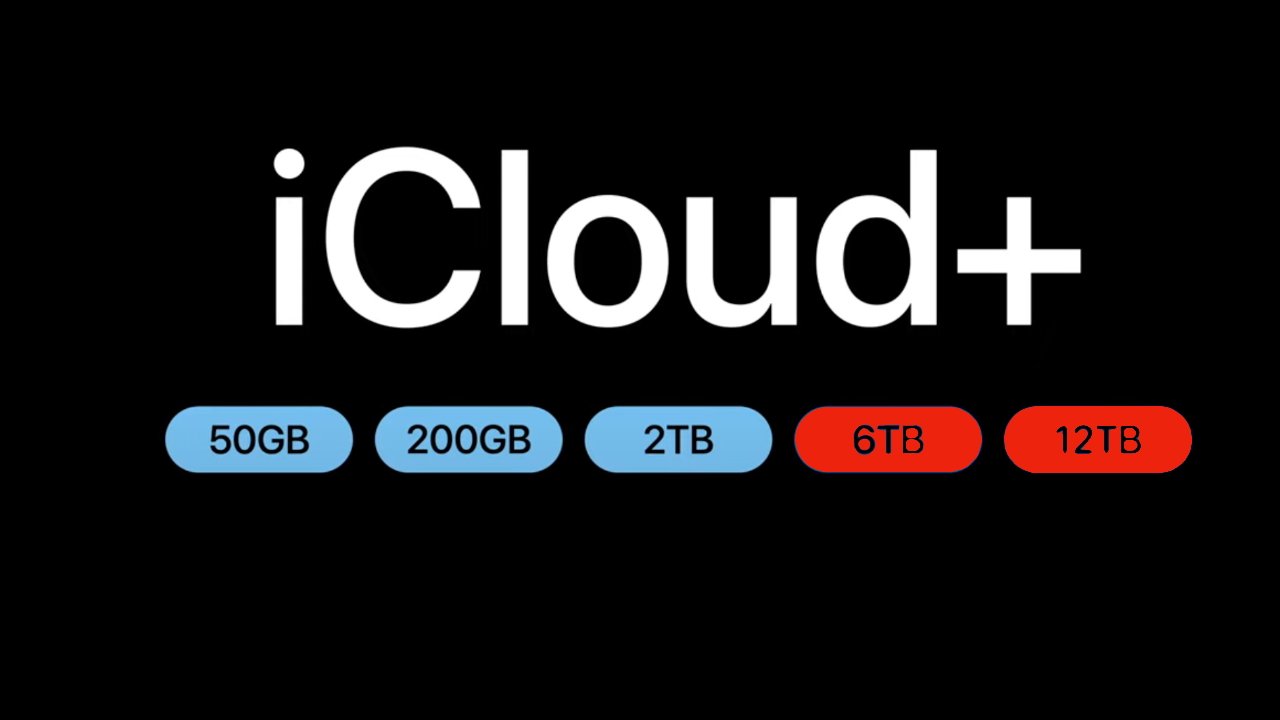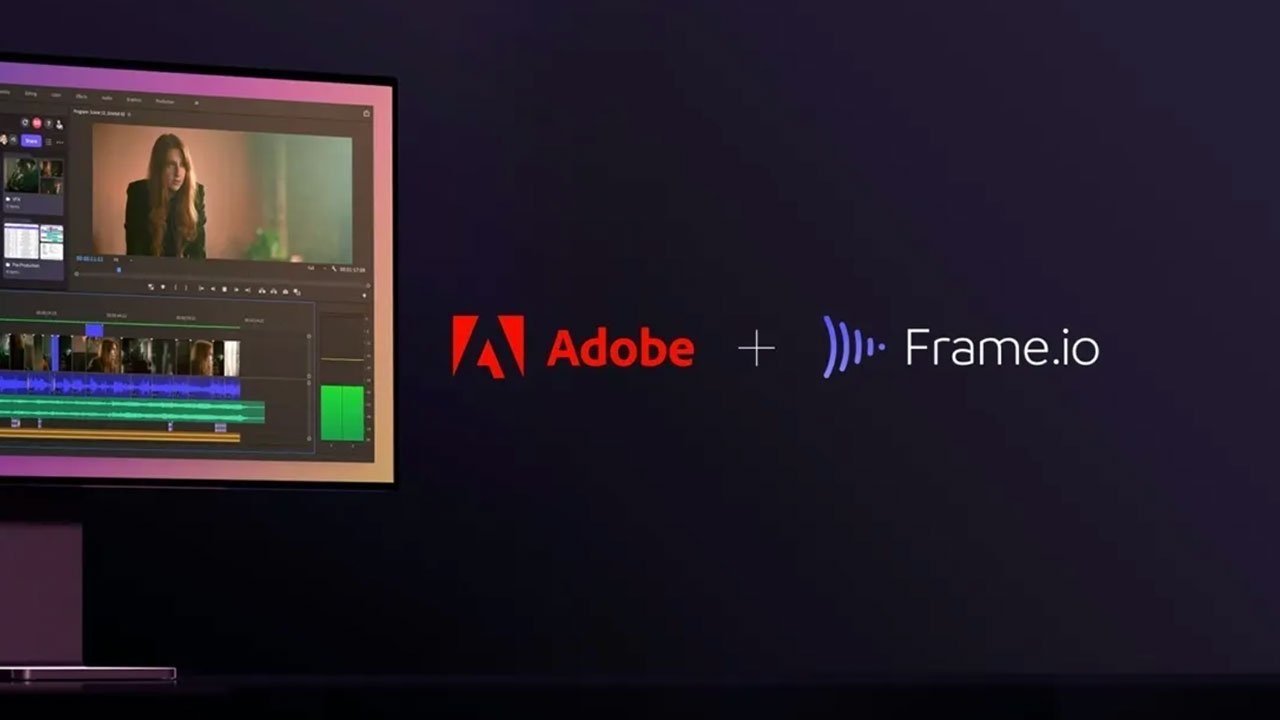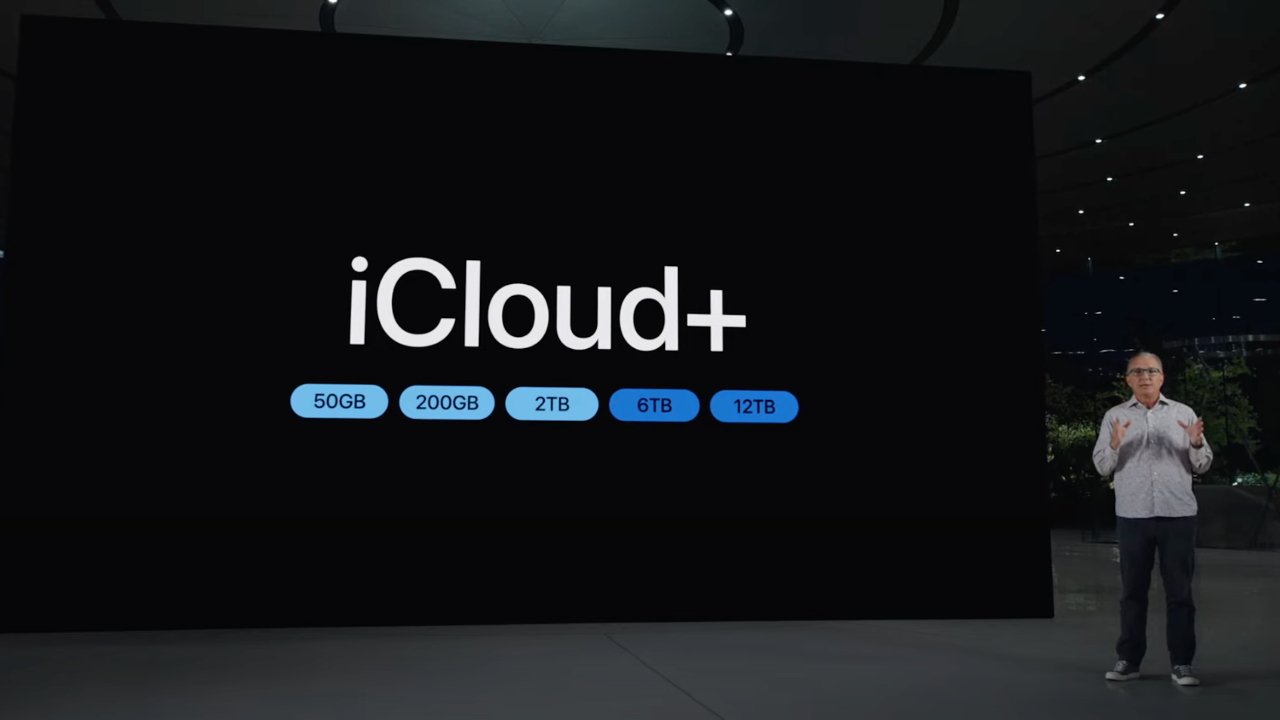Apple is adding new iCloud+ storage options, but at a cost

Users will finally be able to get more iCloud+ storage space, but the cost is too high for anyone but professionals like filmmakers — who have better options.
Perhaps Apple only wedged in its new iCloud+ tiers on the 80th minute of its iPhone 15 launch because there was nowhere else it could fit. Plus, there was not a lot to say about it either, yet the position in the event says one thing, and the positioning of its price says another.
The announcement came on the heels of the iPhone 15 Pro description, which included multiple references to how filmmakers shoot and manage large files. That was specifically to do with how fast the new USB-C data transfer is — at least, on the Pro models — and how video makes can record to external drives.
So it was a perfectly fine segue from users needing space to Apple providing more of it. Except what followed seemed to bounce the needs of consumers and professionals, without ultimately helping either.
Filmmakers won't backup footage to iCloud
Space can be an issue for everyone but it is certainly always so with pro users and most particularly filmmakers. This is an extreme example, but film editor Eddie Hamilton edited "Mission: Impossible: Dead Reckoning Part One" chiefly on a MacBook Pro with the footage stored on a portable 160TB drive.
Apple's 12TB iCloud+ tier is not going to cut it for someone working on a film shot over a couple of years.
Also, no filmmaker is going to trust their footage to iCloud+ or at least never solely to iCloud+. Apple's iCloud is for syncing between devices — and it's not actually possible to back up a Mac to it at all.
You can sync files, passwords, and even desktop contents on a Mac. And you can know that your photos and videos are now on all of your devices. Plus if you delete something, you do have 30 days in which to recover it via icloud.com's data recovery section.
But if anything goes wrong with that footage, if it is in some way corrupted, then every copy on every device is the same. Mess up your local file and Apple will diligently copy that same mess to each copy of it.
Filmmakers can't even share footage efficiently on iCloud
If it can't be used as a backup, then the new iCloud+ tiers ought to be at least usable for sharing footage. The tiers ought to mean there's the capacity to send footage from a film set to wherever it's needed — for editing, for viewing, for the people paying the budget to see what they're getting.
Video footage is forever being shunted around between people and it is always the case that the faster and more easily you can do that, the better.
If it works as Apple claims, then the iPhone 15 Pro's ability to record direct to an external hard drive is huge. That will be an enormous success, and enough so that it might even mean people buying iPhones with less storage capacity than before.
But for moving clips around, for sending the dailies over to someone off-site, and sometimes hundreds or thousands of miles away, for viewing, that's usually done fastest online.
And unfortunately, no matter what Apple says, it is never done fast online with iCloud. For all its strengths, and regardless of how fast an internet connection feeds it, iCloud is slow.
Consumers have little reason to care whether it takes a few minutes to sync some photographs between the devices. But when it's hours of footage and it takes hours to share it, having more space is no use.
Besides, filmmakers already have at least one better option with the frame.io service.
Adobe bought frame.io in 2021 for $1.275 billion. It's an online service for filmmakers in studio or on location to rapidly show their footage to editors or backers far away.

More than just one service for transporting footage, frame.io was quickly incorporated into Adobe's Creative Cloud subscription service. And then Adobe added the ability to view footage on Apple TV.
It's telling that such a service exists, it's showing that there is a real need for it. But what's most revealing about Adobe's offering, though, is that it offers less space than Apple's new tiers.
If they need to, film studios can negotiate rates for more space, and more users using that space, but Frame.io's published tiers top out at 3TB.
That's 3TB, which can be used by up to 16 users, and it costs $25 per month. Per user. That maxes out at $400 per month.
Apple's nearest equivalents after the new iCloud+tiers are added is a 2TB one for $9.99 per month, or the new 6TB for $30 per month.
Plus if a movie maker wants to kill time between setups by playing some Apple Arcade games, they can do that and get the same 2TB iCloud+ space through the Apple One Premier bundle for $32.95 per month.
Plus there is no seat-license kind of limitation on iCloud+. Any number of users can have iCloud+ accounts — Apple is hardly going to stop them — and there can be a shared folder between them.
Films may have large budgets but no film company pays a cent more than it has to for anything, so a cheaper option will always be considered. But the real cost in film making is time and iCloud+ loses here, it loses by a long way.
For storage like this, iCloud is a Finder-level system where you manage files. In comparison, frame.io is integrated into Adobe Creative Cloud — and so is the very popular video editor, Adobe Premiere.
To break that convenience of integration, iCloud+ has to be better and easier than its rivals. Plus it has to be available equally to everyone on a production who needs it.
Back in 2021, AppleInsider said it was finally possible to use iCloud folder sharing as a true alternative to Dropbox — but only for some users. It works the best if everyone is on Apple devices.

PC users can see and use your shared files, but they have to do it via logging in to iCloud.com and they're just not going to do it.
Apple doesn't know who to aim this at or price it for
Apple pressed hard on how professionals need space, and here it is providing some, but it also awkwardly stepped between talking about pro and consumer users.
"Starting next week, iCloud+ is adding two new plans, 6 and 12 terabytes," said Greg Joswiak, Senior Vice President of Worldwide Marketing, "for even more room to keep your photos and videos safe."
That is every word he said about the update, and without the price, it sounds great.
With the price, it does not sound like a consumer service. If $30 and $60 per month sound a lot, try thinking of it as $360 or $720 per year. That $720 is a new iPhone, or about 12TB of physical SSD storage, annually.
It feels as if, after years of not providing enough options for iCloud+ storage, Apple is just having a go to see what happens. Its target market isn't clear, and it's pricing strategy is just to multiple what it already offers.
Only, Apple sells iCloud+ storage space directly and as part of the consumer-facing Apple One bundle. It's going to be interesting to see whether Apple complicates the top Apple One Premier bundle to include options for the new tiers.
Apple is usually surgically precise in who it's aiming a product or service at, and it's also often proven right in the long run. That could happen now, Apple has presumably planned the new tiers carefully.
But it doesn't seem like it. And if you're someone who sat up at the announcement because you're forever hitting the limits of your iCloud+ storage, you're probably also someone who sank back down again because of the price